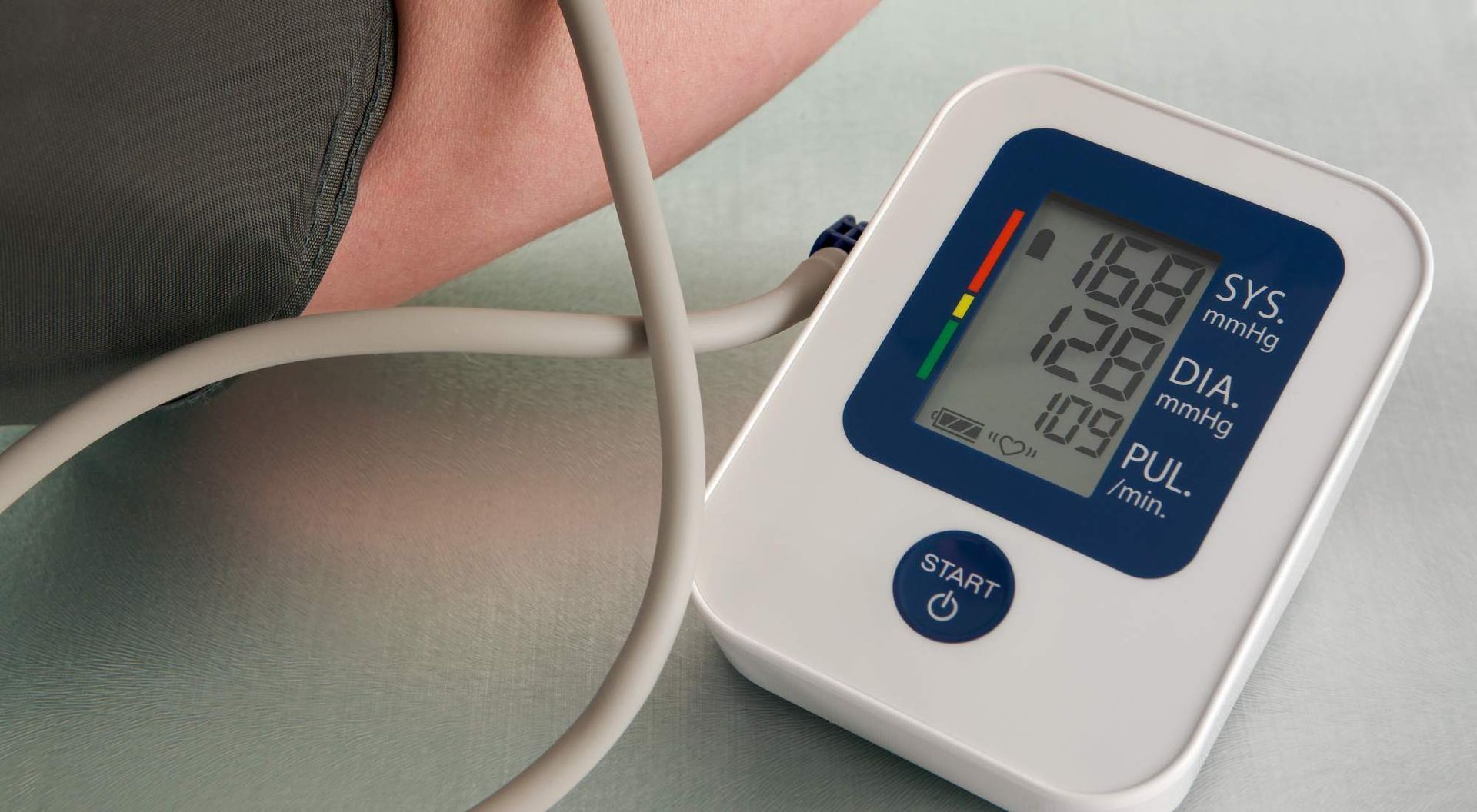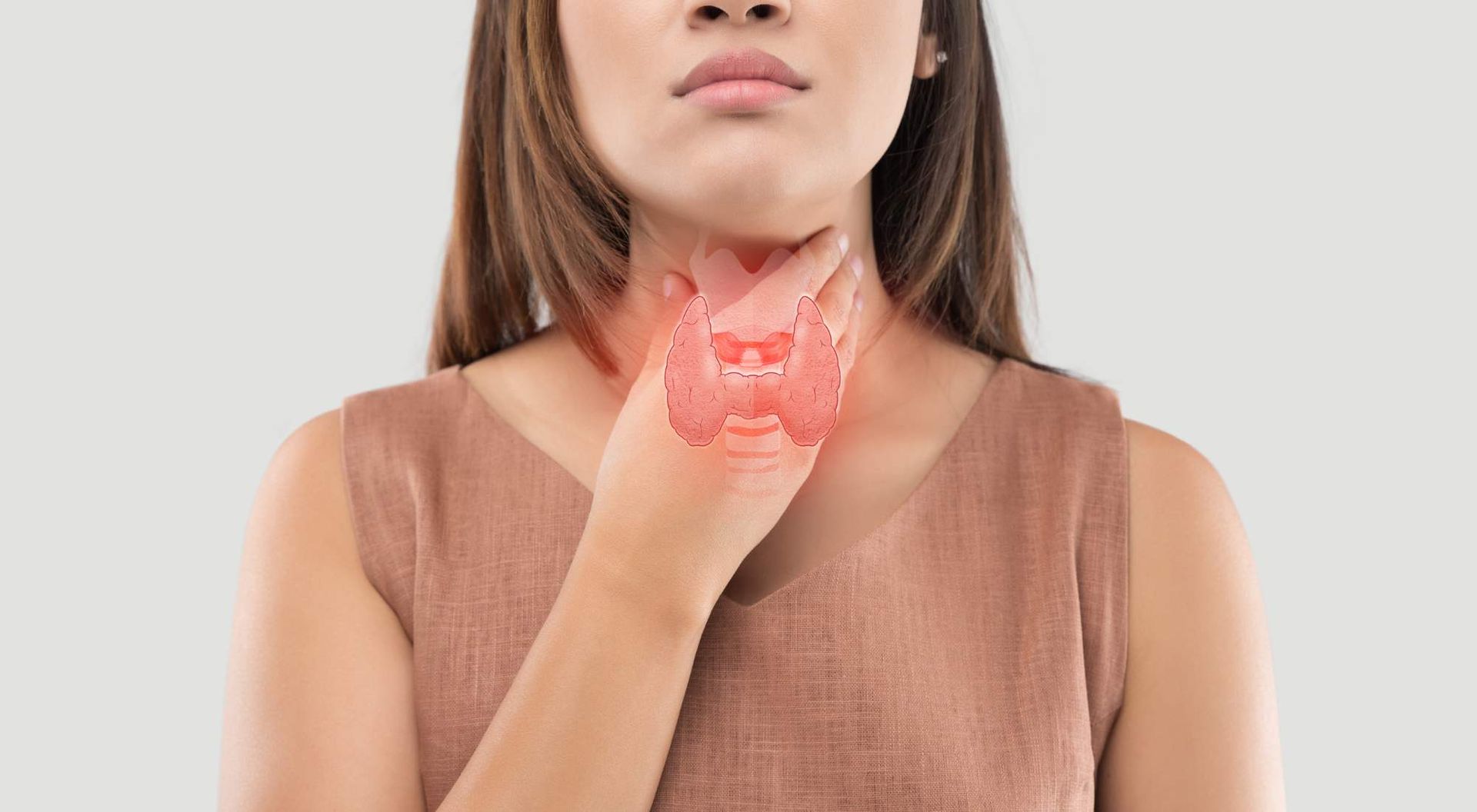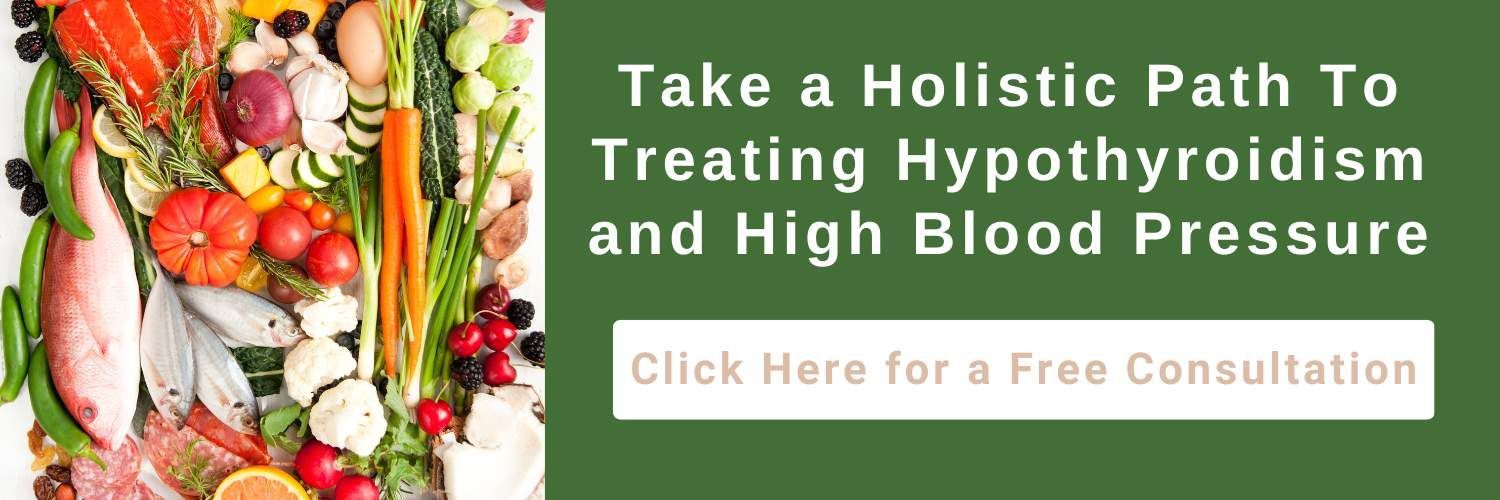Can Hypothyroidism Cause High Blood Pressure? How an Underactive Thyroid May Affect Your Heart Health
"The content below is not intended to be a substitute for professional medical advice, diagnosis, or treatment. Always seek the advice of your physician or other qualified health provider with any questions you may have regarding a medical condition."
Having hypothyroidism can put a lot of pressure on your life, but did you know that it may also be causing your high blood pressure?
Millions of Americans a year suffer from hypothyroidism and hypertension. Could it be possible that the two are intrinsically linked? Could your hypothyroidism be the cause of your high blood pressure?
In this article, we will break down the relationship between hypothyroidism and high blood pressure. We will also offer you some helpful tips on how to manage both.
Table of Contents
Can Having Hypothyroidism Cause High Blood Pressure?
In short, yes. Having hypothyroidism can cause high blood pressure.
A symptom of hypothyroidism is secondary hypertension. Hypertension is a medical condition where a person’s blood pressure is elevated even at rest. Secondary hypertension is a condition where high blood pressure is caused by other diseases like heart disease, kidney disease, diabetes, and hypothyroidism.
According to the American Thyroid Association, an estimated 12% of the American population may be diagnosed with a thyroid condition at some point in their lives. And nearly 122 million Americans aged 20 and up have high blood pressure according to a 2023 medical report from the American Heart Association.
These conditions affect millions of lives in the United States and research may suggest these numbers are growing. So it would be no surprise that there is evidence that these conditions could be directly linked. But why and how does hypothyroidism increase blood pressure?
Why Does Hypothyroidism Increase Blood Pressure?
Thyroid hormones regulate the body’s cardiovascular functions.
When you have an underactive thyroid (hypothyroidism), your body produces less of these hormones which may slow your heart rate and weaken your heart muscle. This causes the stiffening of your heart's arteries and reduces its pumping capacity. In turn, your body attempts to accommodate this by raising your blood pressure to maintain circulation.
How Much Does Hypothyroidism Raise Blood Pressure?
Blood pressure consists of two numbers (systolic and diastolic) that quantify two different bodily aspects.
Systolic blood pressure (the first number) is a measurement of the pressure your heart exerts while beating. Diastolic blood pressure (the second number) measures the amount of pressure in your arteries in between heartbeats. Blood pressure is measured by millimeters of mercury (mmHg)
Guidelines published by the American College of Cardiology and American Heart Association estimated that normal levels of diastolic and systolic blood pressure can be defined as:
- Normal – systolic: <120 mmHg; diastolic: <80 mmHg
- Elevated – systolic:120-129 mmHg; diastolic: <80 mmHg
- Stage 1 hypertension – systolic:130-139 mmHg; diastolic 80-89 mmHg
- Stage 2 hypertension – systolic: ≥140 mmHg; ≥90 mmHg
Research has found that secondary hypertension caused by hypothyroidism most often affects diastolic blood pressure.
But exactly how much does hypothyroidism raise diastolic blood pressure?
One
study reviewed and monitored 40 thyrotoxic patients after they were artificially induced to have high levels of thyroid hormones by radioiodine therapy. This process was designed to mimic the cardiovascular effects of hypothyroidism to study how it affects blood pressure. It was found that the diastolic blood pressure in 40% of the patients was significantly increased, rising an average of 90 mmHg.
What Are the Possible Effects of High Diastolic Pressure?
Isolated hyper diastolic hypertension (IDH), where the systolic blood pressure readings are within the normal range, persists in 30% of individuals with hypothyroidism.
IDH does not often present notable symptoms, but it does have long-term negative effects. However, there are some cases where IDH does cause immediate medical symptoms which might include:
- Difficulty with breathing
- Chest pain
- Sudden lightheadedness
- Weakness or fatigue
- Speech changes
- Syncope (fainting or passing out)
If you have a history of hypertension and experience these symptoms you may need to seek immediate medical attention, as these symptoms may be a sign of heart attack or stroke.
The long-term effects of diastolic hypertension and IDH could lead to the development of various diseases and complications such as:
- Heart disease
- Heart attack
- Aneurysm
- Atrial fibrillation
- Peripheral arterial disease
Research has found that each increase of 10 mmHg diastolic blood pressure amongst individuals ages 40-89 doubles the risk of heart disease or stroke.
Does Levothyroxine Cause High Blood Pressure?
A common treatment for hypothyroidism is Levothyroxine. This medication is a form of hormone replacement therapy where the drug mimics thyroxine. Thyroxine is a thyroid hormone that is responsible for regulating thyroid functions. Levothyroxine supplements the lack of thyroxine production that is presented in hypothyroidism.
Studies show that Levothyroxine can help reduce secondary hypertension in patients diagnosed wth hypothyroidism.
Hypothyroidism only causes the thyroid to produce a reduced amount of thyroxine, it typically does not cause the total halt of hormone production. Levothyroxine is prescribed to supplement this, but sometimes you may get too much thyroid hormone.
For example, say your thyroid is only producing 60% of the amount of thyroxine your body needs to properly function so a synthetic hormone may be used to give you that other 40%. But what if your body produces 80%, but you’re prescribed 40%? Your body now has 120% of thyroid hormones, 20% of what your body normally needs.
Levothyroxine overconsumption can cause several symptoms that may include:
- Weight loss
- Increased appetite
- Heat sensitivity
- Excessive sweating
- Headache
- Anxiety
- Irritability
- High blood pressure
Hypothyroidism is a condition that is chronic and will be with you for the rest of your life. It can be hard to imagine managing your symptoms with medication alone and then managing the symptoms caused by the same medication possible with more medication.
Not everyone wants to fight medications with other medications.
Dr. Sergi wants to help you manage your hyperthyroidism and high blood pressure with one of the most necessary medications available — nutrition. At HealthierU, we will work with you every step of the way to develop a nutritional plan to supplement your current hypothyroidism treatments. Schedule your free consultation today.
How Do You Treat Hypertension in Hypothyroidism?
Luckily the medication you may be prescribed to treat your hypothyroidism should reduce your hypertension. Thyroid hormone replacement drugs, like Levothyroxine, were found to reduce hypertension in patients with hypothyroidism.
One study monitored the effects of Levothyroxine on blood pressure. In this study, 30 patients with thyroid disorders were given the drug. In 15 patients, Levothyroxine only caused a small decrease in blood pressure. While the remaining 15 patients were found to have a complete normalization of blood pressure levels.
If you are experiencing hypertension caused by thyroid hormone replacement therapy, your doctor may reduce your prescription or suggest that you stop taking it until your blood pressure normalizes. Other medications, like a calcium channel blocker or ACE inhibitor, may be prescribed to maintain your blood pressure.
You may be able to adjust your lifestyle to help aid your prescribed hypothyroidism treatment.
6 Lifestyle Changes That Can Help Improve Your Thyroid Health and Hypertension
#1: Diet
High-sodium diets may also cause hypertension. Generally, the rule of thumb is the more sodium you eat—the higher your blood pressure may rise.
If you're suffering from secondary hypertension you may want to limit or avoid:
- Alcohol
- Sodium
- Saturated fats
- Trans fats
- Fatty meats
- Processed foods
- Excess sugar
While some foods may harm, others can help. Eating a “heart-healthy” diet may help combat high blood pressure.
Foods you can arm your diet with to help manage your hypothyroidism and hypertension may include:
- Fruits
- Veggies
- Low-dairy products
- Foods high in Omega Fatty-3 acids like fish
- Nuts and legumes
Maybe you’re like the rest of us: a busy and sometimes overly stressed individual. It can be so easy to resort to over-processed and fast food when you’re in a pinch for time and can’t fuss over cooking a healthy home-cooked meal.
You might find it difficult to eat with your health in mind when you don’t even know where to start.
HealthierU wants to help. Let Dr. Donna Sergi guide you through the holistic process of filling your plate with all the necessary nutrients and vitamins to help you manage your secondary hypertension caused by hypothyroidism.
#2: Exercise
Regular exercise may help to lower blood pressure in two main ways:
- Exercise can reduce arterial stiffening and allow blood to flow easily.
- Exercise can help strengthen your heart and a stronger heart can help your body pump more blood with less effort.
High blood pressure weakens the heart and arteries over time, whereas exercise strengthens your heart and relaxes blood vessels.
Research shows that while exercise can lower your blood pressure during your workout, the long-term benefits can also lower high blood pressure over time. A 2003
study found that just 61-90 minutes of exercise a week lowered subjects' blood pressure significantly more than the non-exercise control group.
#3: Stress Management
We know that mental health can have long-term physiological effects, but how does that affect our blood pressure?
Stress is sometimes attributed to an adrenal hormone called cortisol. Cortisol is produced by your body when cells become inflamed. It causes your blood pressure and heart rate to rise, giving it the name “the stress hormone.”
Long-term exposure to cortisol can cause elevated blood pressure levels even when your body is at rest. This is why it is important to prioritize your mental health, as well as your physical health.
Remember to take time aside from your usual responsibilities to give yourself a well-deserved break to manage stress and reduce feelings of
anxiety.
#4: Improved Sleep
Sleep contributes to the management of our blood pressure. When we sleep, our blood pressure is lowered at least by 10%. Lack of sleep or poor sleep means that our blood pressure remains higher for a longer period of time.
Sleep also manages stress hormones like cortisol, which may also contribute to high blood pressure. If you don’t sleep enough your body may not have enough time to manage these hormones properly.
It is recommended that adults get at least 7-8 hours of sleep a night, any less could have negative effects on blood pressure. One study called the Sleep Heart Health Study found that the subjects who slept five hours or less were more prone to developing hypertension.
The CDC recommends trying these tips to improve your sleep:
- Stick to a strict sleep schedule
- Go outside at least once a day
- Regularly exercise, but not right before bedtime
- Avoid artificial light at least two hours before bedtime
- Avoid alcohol
- Do not eat at least two hours before bedtime
- Provide yourself with a cool, calm, and quiet place to sleep
#5: Supplements
Sometimes you can’t get everything your body needs in your diet. Or maybe your medication needs a little more support. That’s okay, you can supplement your current plan of attack with supplements.
Supplements that you can utilize to help manage your hypertension may include:
- Magnesium–A magnesium supplement can increase nitric oxide which may help relax blood vessels which may lower blood pressure.
- Vitamin D–Studies have found that vitamin D deficiencies may be directly linked to high blood pressure. Other studies have provided evidence that vitamin D may help decrease the risk of developing high blood pressure.
- B Vitamins–Vitamins B9 and B12 have been found to lower blood pressure in secondary hypertensive patients.
- Potassium–This vitamin helps reduce sodium levels in the body by promoting sodium excretion levels in urine. Potassium also helps relax blood vessels. There are 23 studies that suggest that potassium supplements may significantly lower blood pressure.
#6: Peptide Therapy
Peptide therapy is a non-invasive treatment that uses a peptide supplement to treat certain conditions. The purpose of this natural therapy is to restore or increase the number of peptides in your body to stimulate cell regrowth.
Peptide therapy has been used to help:
- Hair growth
- Inflammation
- The healing process
- The effects of aging
- And lower blood pressure
Studies show that food-derived peptides have significant benefits in lowering blood pressure levels in hypertensive individuals.
Natriuretic peptides raise sodium secretion levels in urine, which allows the body to flush out excess sodium that may cause high blood pressure.
Casein peptides can cause blood vessels to dilate which can decrease arterial stiffening and decrease blood pressure.
HealthierU Wants To Help You Permanently Alleviate Your Hypothyroidism and High Blood Pressure Using Natural Remedies
Your health is not just one part of you. Disease does not just affect one part of you. So why should we expect one medication or treatment to reign true for diseases that affect multiple aspects of our health?
At HealthierU, we take into account that you are a multifaceted being. You are not simple, and neither is your health. So why not take a multifaceted approach to managing your symptoms of hypothyroidism and high blood pressure?
By using a holistic approach to health, Dr. Donna Sergi uses the power of nutrition and natural remedies to challenge the adverse effects of chronic illnesses and diseases.
Your journey to a healthier you starts with you, but we’re here to help. Schedule a free consultation today.






